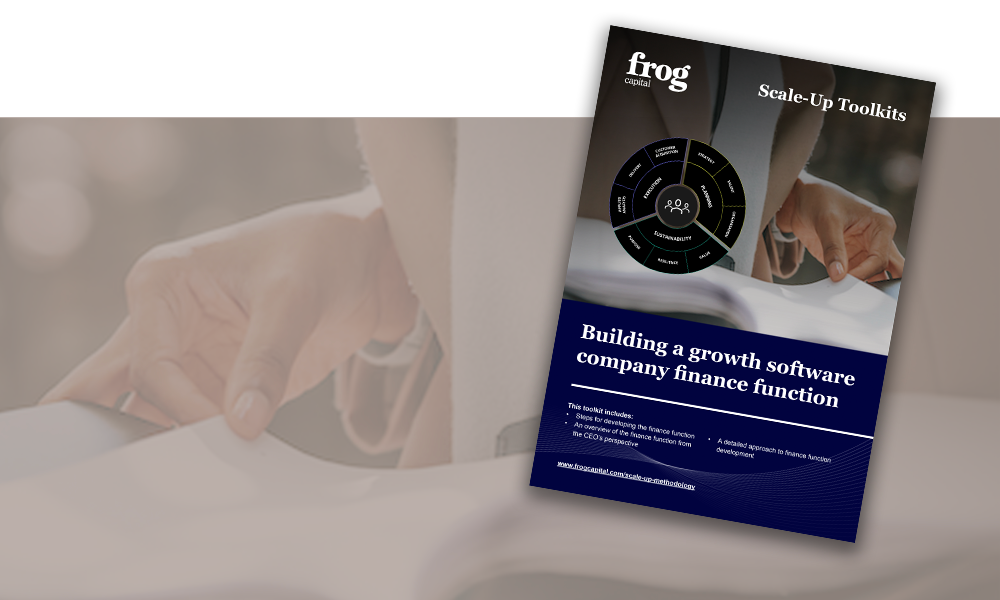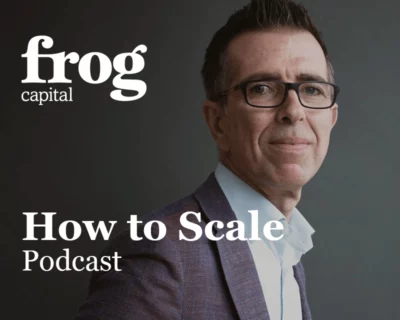The remit of the finance department in a small company is usually ill-defined and often quite limited from the entrepreneur’s perspective. When I was a portfolio company CFO, the CEOs’ initial expectations of finance were generally expressed (partially in jest, I hope) in terms of keeping them out of jail, and ensuring they don’t go bust. Over time they were persuaded that the bar should be much higher, and I would characterise it as follows:
“The finance function is fundamental to aligning resources with execution of strategy and is a value add part of a growing business.”
A clear structure for the finance remit comes from the respected accountancy professional body Institute of Chartered Accountants in England and Wales, which segments the activities of a finance department between:
- Accounting – To record the financial consequences of organisational activities.
- Compliance – To meet the requirements of governmental and other regulatory bodies.
- Management and Control – To produce and use financial and related information to inform, monitor and instigate operational actions to meet organisational objectives.
- Strategy and Risk – To inform and influence from a financial perspective the development and implementation of strategy, and to manage risk.
- Funding – To inform and engage with investors and funders, both current and potential, to obtain and maintain the necessary financial resources for the organisation.
The value add objective for finance requires appropriate resources to perform the hygiene factors, reporting (inc accounting) and compliance (“keeping out of jail”), as well as the more value add impact on the business of the other three functions.
This might feel overly structured for a young company with few people and little scope for segmentation of activities in finance but is a good yard stick against which to build for the long term.
A more obvious short term approach to scaleup company priorities is to categorise the deliverables that cut across activity segments being:
- Cash management
- Reporting
- Business Intelligence
Cash management – the sales to cash cycle
In software businesses, the majority of costs are payroll related and outsourcing payroll is a sensible approach to ensuring sufficient controls exist. Besides office costs, the biggest suppliers are likely to be large tech companies like AWS or Google where there is little room to manage terms. Accounts payable is therefore only likely to be a part-time role but accounts receivable (debtor collection) will be critical for cash management, particularly for B2B businesses.
Making sure that sales translates efficiency into cash is the challenge for accounts receivable but the skill is not in being a great debt collector, though that is sometimes required. For Alex Marsella, “a 13 week short term cashflow forecast builds visibility, consistency and accuracy to the working practice and diligence of a finance team.”
“Prevention is always better than cure, so it is essential to minimise the opportunities for payment slippage without impacting on the ability to sell.”
This means contract terms need to be subject to clear guideline and approvals, accurately recorded and confirmed with the counterparty and any disputes have a clear escalation and resolution process. Invoices need to be issued in a timely fashion and be correct first time. An excellent accounts receivable person will build very good relationships with their own sales team to ensure cash collection is on their radar and they provide the best possible chance of collection with their actions at the start of the cash collection process, which is the sale itself. For Alex Marsella it is “absolutely fundamental” to get someone with the right level of experience.
It is easy for VC backed businesses with lots of cash on the balance sheet to be lax about cash collection as they focus on sales growth but this creates an expectation in clients which is extremely hard to change later and is therefore storing up trouble. Terms that would be acceptable initially become a point of contention and possible client loss when introduced as a tightening when proper financial discipline is required. Contracted MRR is a good forward looking KPI but it doesn’t pay any bills until invoices are issued and collected.
Reporting – a basis for good decision making
Quality information is essential for good decision making but it must also be timely, especially for a small, fast growing business. The management accountant needs to make good judgements on the trade-off between accuracy and time, estimating items that are not material but take a while to collate and process (e.g. sales team expenses) is important. To make these calls the accountant needs to understand all the costs and expenses of each department and how they relate to delivering the business objectives.
The biggest challenge for an accountant in a small business is the lack of people to allow best practice of segregation of duties and cross checking. Though systems automation is helping in many respects it isn’t the whole answer. More emphasis is required on built in process controls (inside and outside of the finance department) and reconciliations to identify anomalies. It also requires a level of business understanding that immediately flags when something is unusual. This needs to be checked back to the department heads responsible, who themselves need to recognise they are part of the accurate reporting process. Procedures and controls need to be appropriate for the size of business such that they can prevent material problems without creating unnecessary bureaucracy that takes resources away from driving growth.
Business Intelligence – forward looking KPIs and sophisticated forecasting
The finance department will sit at the top of various streams of information from different departments and needs to be able to consolidate these into meaningful reporting for senior management, and ultimately the board, to digest efficiently.
This analytical and presentation work often gets tagged on to the accountant’s role requirements but it requires a skillset that, though many accountants develop with experience, not all are suited to and dedicated expertise may be required. Reversing the approach and hiring a BI expert to run a finance department provides more capacity for insight but at the cost that the underlying information may be less reliable without the accountant’s core skills in dealing with the hygiene factors of accounting and compliance.
BI requirements normally sit with the CFO until a specialist is recruited and this is a good way to build the groundwork of understanding the minutiae of the business before moving on to the big picture view.
Guy Hutchinson, Founder of the StartupCFO members group and Finance Foundry consultancy says. ‘Having been CFO in a number of software start-ups I’ve realised that the hire of the deeply commercial CFO needs to bring the analytic insight and data-crunching skills allowing you to build out a BI function version 1.0. All the questions about which metrics to focus on and which levers you have to move those metrics, typically, remain unanswered in this stage of the business’s development. This means rolling up your sleeves and building the foundations is really a key ask for that person. You really should complete that step before you in a position to hire the BI Analyst, make the platform investment and allow the analytics function to scale’.
Cash management (or “ensuring we don’t go bust”) is fundamental to all businesses and sits across accounting (recording of financial consequences), management and control (to ensure the reporting has no surprises) strategy and risk (predicting future cash needs) and fundraising but there is so much more that finance can do to create value though supporting good long term decision making.
Building the confidence that means reporting provides the basis of good decision making and never needs to be questioned is a huge hidden value add for a finance functions that frees up senior time for more useful forward looking assessment.
Summary
In building a finance function through the growth cycle of a VC backed business the investment needs to be appropriate but ahead of the curve. The step by step recommendations are set out in the attached toolkit.
Many of the skills required are generic across finance departments but I think it is fundamental that all members of the finance team should interact enthusiastically with the rest of the business to perform at their best and so ideally they should be engaged with the mission of the company and be an articulate advocate of their products.
Delivering accurate, reliable reporting and good cash management (including forecasting) is not optional for companies looking to build credibility with their shareholders and potential investors.
Building towards the future requires an early investment in a good CFO and allowing them to make a difference, as serial VC CFO (most recently at Frog portfolio company Sellics), Alex Marsellla says, it is also “vital that the CEO/founder releases day to day control on finance and some operational activities…trust must be maintained in balanced way”.












